Notebook
-
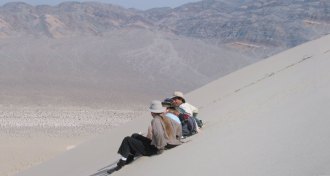 Physics
PhysicsUncovering the science of sand dune ‘booms’
Mechanical engineer and geophysicist Nathalie Vriend explores noises in the desert that are triggered by sand sliding down dunes.
By Andrew Grant -
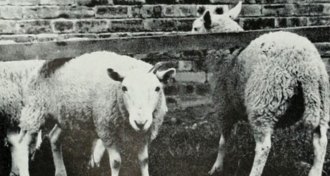 Science & Society
Science & SocietyLinks between scrapie and MS less likely
Five decades later, scientists still puzzle over what causes multiple sclerosis.
-
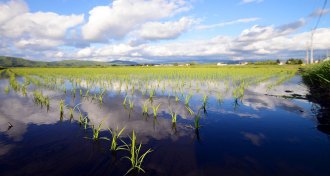 Earth
EarthHumankind’s water use greater than thought
Humans’ global water footprint increases when accounting for water losses from water management practices.
-
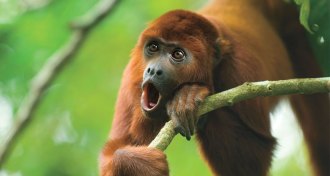 Animals
AnimalsInside the roaring sex lives of howler monkeys
Listening to the intense roars of howler monkeys in Mexico inspired scientists to decipher how and why calls differ among species.
-
 Astronomy
AstronomySuper-Earths, meet superpuffs, a lighter weight class of planet
Superpuffs are underweight, oversized planets that formed in outskirts of star systems before cuddling up close to their sun.
-
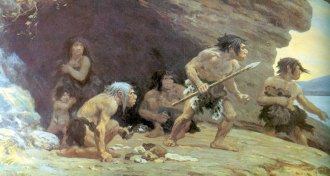 Archaeology
ArchaeologyMystery still surrounds Neandertals
Neandertals’ relationship to modern humans is still a matter of debate.
-
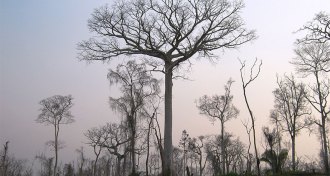 Life
LifeMany Amazon trees endangered
Large numbers of Amazon tree species are threatened by deforestation.
-
 Health & Medicine
Health & MedicineHaving parasites can boost fertility
Infection with parasitic worms tinkers with fertility.
By Meghan Rosen -
 Planetary Science
Planetary ScienceWay-out world is solar system’s most distant object — for now
An icy world over 15 billion kilometers from the sun is the new record holder for most distant object in the solar system.
-
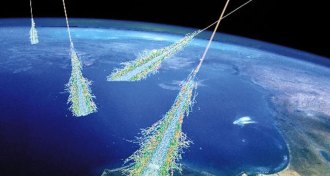 Astronomy
AstronomyCosmic rays maintain their mystery
Cosmic rays come from all over the universe, including some places we’re not so sure about.
-
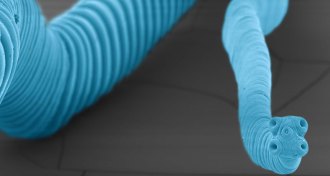 Health & Medicine
Health & MedicineParasite gives a man cancer
Tapeworms can kick parasitism up a notch to become cancer, a case in Colombia shows.
-
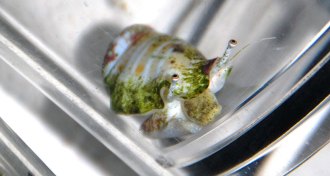 Animals
AnimalsHunchbacked conchs jump at the smell of danger
Hunchbacked conchs are among the most vigorous of snailkind’s few jumpers.
By Susan Milius